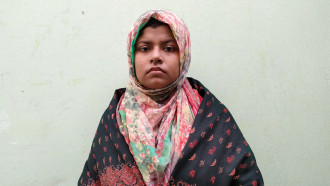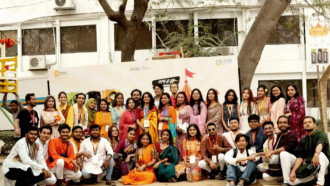Hookah becomes extinct

Dhaka: Once widely used throughout Bangladesh as a cheaper—and perhaps healthier—smoking alternative, the good old hookah is now turning into an antique piece owing to changing lifestyles and social mores.
However, it does not mean that hookah users have given up smoking. Arup Ratan, a campaigner against smoking, said smokers have shifted to other modes. Smokers now prefer cigarettes or bidis as a result of their changing lifestyles and greater financial abilities, and indeed, to make smoking hassle-free.
Smoking a hookah is a bit cumbersome than smoking cigarettes because smokers have to make other preparations. For instance, hookah smokers have to rub the tobacco with a liquid made from molasses.
Smoking a hookah also requires other ingredients and women in the family used to make a substance like cinder - locally called tikka - which was dried in the sun. They made small tikka cakes with the burnt ashes of jute plants. At one point of time, women used to make tikkas for months together.
The hookah is usually made of coconut shell for general use, but there were some gorgeous hookahs - made of silver and copper - used by the richer sections of the society, like zamindars or landlords.
A small wooden stick is set on the coconut shell and a bowl made of earth is set on the top of the wooden stick of the hookah, which holds the tobacco and cinder.
Today, professional hookah makers, mainly gypsies, have changed their profession and the corners in village bazaars where hookahs used to be sold are slowly vanishing.
Though usually one hookah is shared by many people, there were also families in which every member had a hookah to himself.
This writer extensively searched for hookahs in several districts of Bangladesh like Brahmanbaria, Comilla, and Chandpur - but in vain.
In Brahmanbaria, Abu Taher, aged over 70, told IANS: “I don’t see hookahs in the district. With the changing times, people have shifted to cigarettes or bidis. I myself shifted to cigarettes a long time back.”
Ahsanullah of Dinajpur, who has to travel extensively because of professional demands, told IANS: “I don’t see hookahs here anymore.”
Hookahs have now become antiques. In the capital Dhaka, people keep hookahs in their living rooms as decorative pieces.

 IANS
IANS




